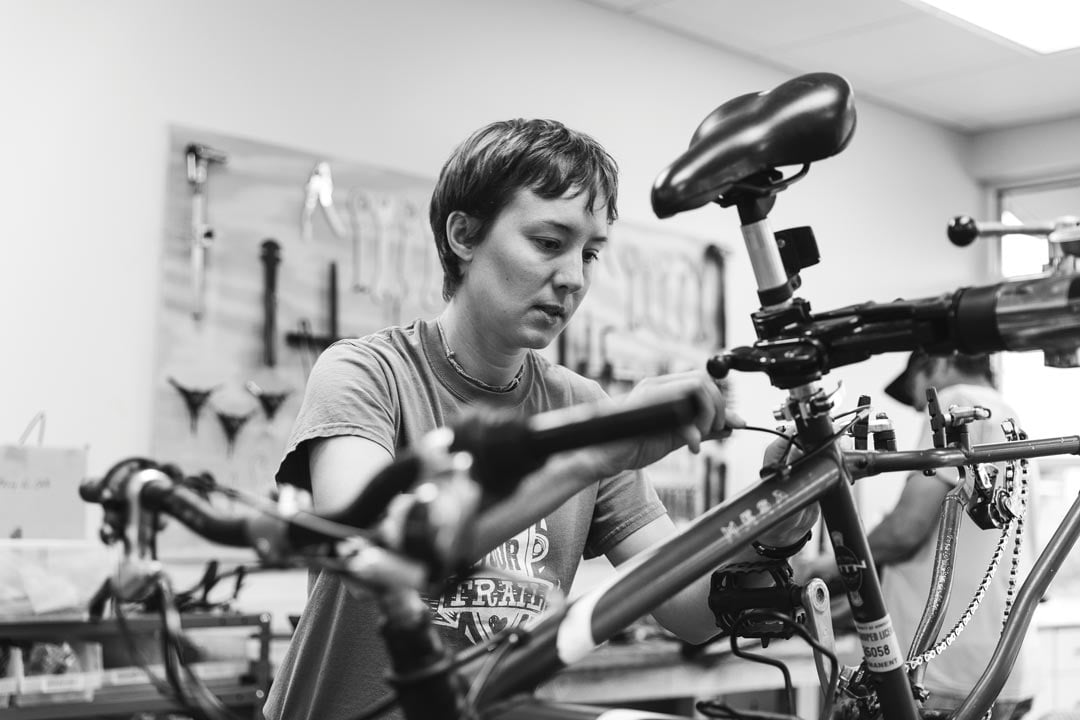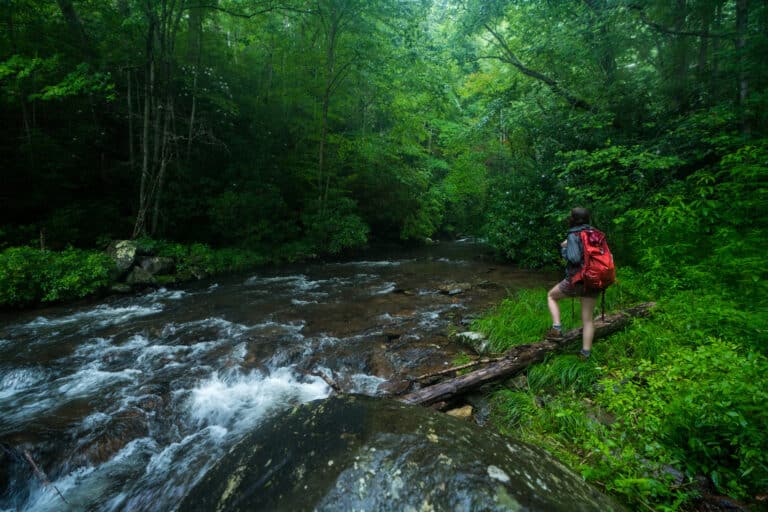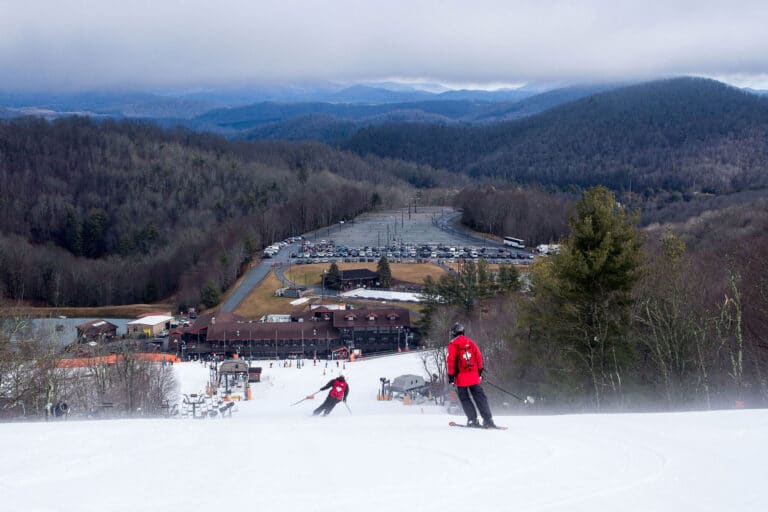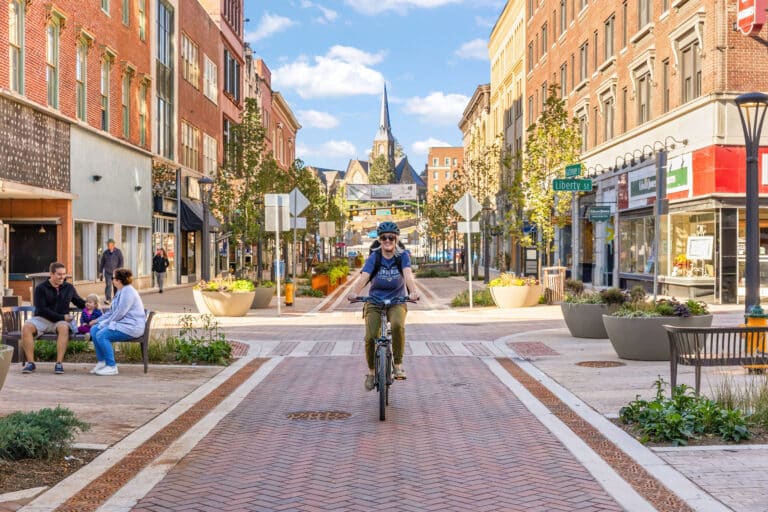In 2015, a photo of the lifeless body of three-year-old Aylan Kurdi, who drowned while he and his family were attempting to cross from Turkey to Greece, went viral, sparking a heated international debate about the refugee crisis. Millions of people suddenly had a very real, very personal glimpse inside an issue that, for many, felt so far removed from their daily lives.
Ritchie Vaughan, a realtor and cyclist in Harrisonburg, Va., was one of those galvanized by the image. Looking for ways to help, she reached out to Harrisonburg’s refugee resettlement organization, run by Church World Service (CWS). That initial phone call landed her at a women’s only tea group, where she surveyed participants about the city’s public transportation system.
In short, the overwhelming response was it sucked—there weren’t enough bus stops or routes or buses, causing many of the women to be late for important appointments or work. Vaughan, a daily bike commuter, asked if any of the women had a bike.
“Most of them were from the Middle East. They all turned to each other and laughed and giggled,” Vaughan says. “They told me it was basically illegal for a woman to ride a bike over there.”
The next meeting, Vaughan showed up with a handful of bikes and taught the women how to ride. The sense of freedom and empowerment the women felt was so powerful that Rebecca Sprague, Community Program Coordinator for CWS, felt certain there was a larger need for bicycles in the refugee community.
“Harrisonburg isn’t a large city,” Sprague says. “We don’t have a lot of public transportation. Some of these refugees have been living in refugee camps for 30 years without access to electricity or cars, so when they get here and the driving manual is only available in English or Spanish, it often takes some populations longer to learn to drive. The bicycle has been really important for those people. It gives them more independence and confidence and I think helps them integrate more quickly.”
Thus, Bikes For Refugees was born. Initially, the demand was greater than the resources Vaughan could provide. Harrisonburg has a long history of resettling refugees in the area, thanks in large part to the Mennonite Church and the Church of the Brethren. Long before the modern refugee resettlement program was established by Ronald Reagan in the 1980s, both churches were welcoming refugees displaced by World War II.
In recent years, Harrisonburg was resettling an average of 100 to 250 refugees every year, with about one-fifth of those coming to Bikes For Refugees. Vaughan and the program’s few volunteers pulled long hours sourcing and repairing bicycles, organizing safety training sessions, and acquiring essentials like helmets and pumps to give to each new bike owner.
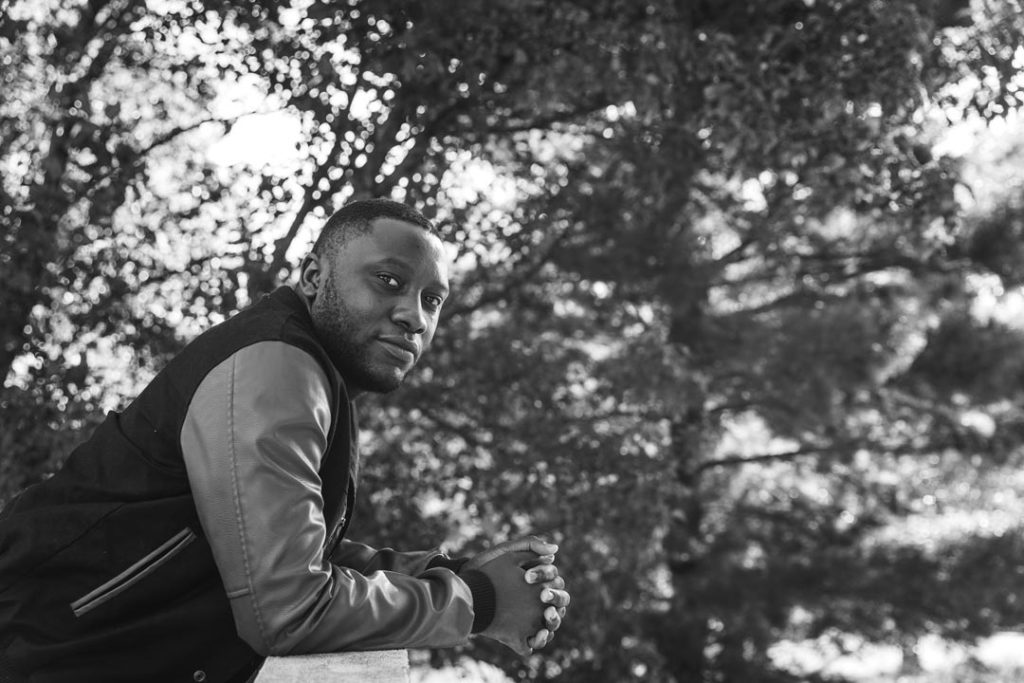
Rewarding as it was, the work had its challenges. Sometimes it took Vaughan over a month to get a refugee a bicycle that was in good working order. Given the lengthy list of tasks—such as finding employment and applying for social security—required of each refugee within the first 90 days of resettlement, one month is a long time to go without reliable transportation.
But within the past year, the influx of refugees has slowed to a mere trickle. At the end of September 2018, Harrisonburg had resettled only 60 refugees, as opposed to the previous year’s 260. Nationwide, the United States approved just 20,000 refugees, which is 25,000 fewer than the official Presidential Determination of 45,000 (in and of itself, a historic low—former administrations maintained the Presidential Determination around 75,000).
“It’s heartbreaking,” says Sprague. “We have clients come to our office every day saying their family is still ‘over there,’ in places like Pakistan or other Muslim majority countries, and there’s nothing we can do. There are a lot of places that are really unsafe right now. The need for refugee resettlement is greater than it’s ever been.”
Despite the decrease in refugees, CWS and Bikes For Refugees are expanding their reach to help other immigrant populations like secondary migrants and asylum seekers.
Rodrigue Makelele, 27, is one of the latter. Originally from the Democratic Republic of the Congo, Makelele came to Harrisonburg in the spring of 2017 through the Eastern Mennonite University’s Center for Justice & Peacebuilding program.
In 2008, when Makelele was just 17 years old, his father was murdered by a group of Congolese rebels affiliated with the government. Two years later, his mother passed away, leaving the then 19-year-old to care for his 10 siblings. After receiving his undergraduate degree in computer sciences, Makelele picked up a job installing internet communications systems in rural parts of the Congo.
Originally from the thriving capital city of Goma, Makelele was suddenly exposed firsthand to extreme poverty, starvation, and lack of basic medical care. In one village he visited, where the total population was only 1000, 35 children died in 30 days. Distraught but committed to making a change, Makelele founded the non-profit Vijana Africa, which aims at educating and empowering youth. Around the same time, he became a citizen journalist, reporting on his blog about the human rights injustices and corruption within the Congolese government.
His articles eventually landed him in prison for three months where he was held without trial and tortured, his family threatened. Though he was able to make it to the United States, his stay here is not guaranteed; in September 2017, Makelele submitted his application for asylum, and as of October 2018, he still had not received any updates. His family, meanwhile, is still in the Congo.
Within a few months of arriving, Makelele met Vaughan. At the time, Makelele was living in Rockingham County, which is not on any of the city’s bus routes. Vaughan gave Makelele a bike, and even though he had to ride 25 minutes uphill to reach the first bus stop, he was finally able to have some independence in his new life.
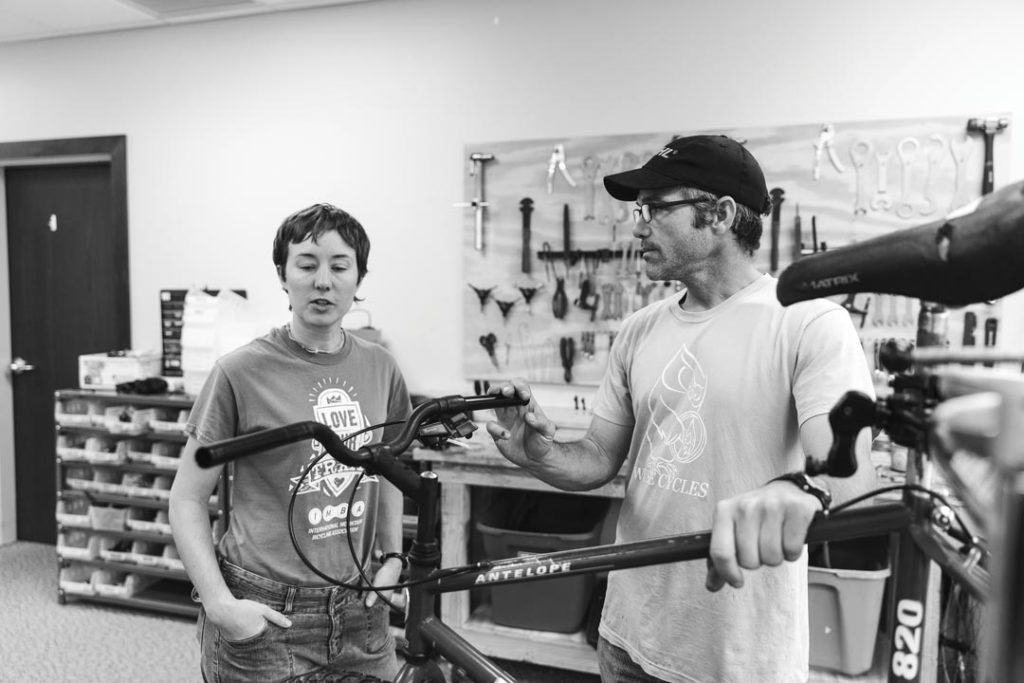
“It’s really a tough situation right now,” he says. “Watching what is being said and the attitude by the government, for people like me it is really tough and really traumatizing. The community here was very welcoming and helped me work through this transition.”
Makelele recently passed his driver’s license test and received a donated car. He returned his bicycle to the program for another newcomer to use. When he’s not studying for his master’s degree in conflict transformation, he’s pulling shifts at the CVS and doing his best to take care of his family from afar.
Sprague urges communities to contact their state senators and representatives in support of returning the Presidential Determination number of refugees back to its historic value of 75,000. In a city that was once described as “99.2% American-born and 93.7% white,” Harrisonburg’s diverse economy thrives because of its diverse population—a 2018 study released by James Madison University found that immigrants made up 9.8% of the city’s population and 13.8% of its entrepreneurs. In 2016, foreign-born residents alone contributed 10% to the Harrisonburg area’s GDP.
Back at 821 Mount Clinton Pike, Vaughan is prepping bikes for a family that will arrive in a week. She says it’s volunteers, not bikes, that present the biggest need for Bikes For Refugees.
Interested in lending a hand? Visit svbcoalition.org/bicycles-for-refugees for more information.
